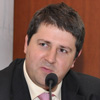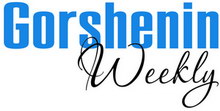As Eastern Mediterranean’s Waters Heat Up, Turkey Should Lead An OSCE-Type Initiative In The Middle East[Over]  by Mehmet
Ogutcu, by Mehmet
Ogutcu,
Expert in global energy security matters
The Turkish leadership has committed itself to a tough position on Israel, Cyprus and Syria, and any backtracking or sign of weakness will seriously affect its credibility at home, with regional partners, the “Arab Street” and other major global powers, as well as high stakes involved in the Eastern Mediterranean. This represents a policy of principle, consistent with the values and goals the government pursues, but is also a risky one, which if not well managed may lead to some undesirable hot confrontation. The power comes with responsibility if it will be effectively harnessed.READ MORE
A chance to get serious about EU-Russia relations[Over]  by Marat Terterov, by Marat Terterov,
EGF Director
Although 2011 is still far from over, it is already likely to go down in history as the year of the so called ‘Arab Spring’. 2011 will be remembered as the year when Arab populations threw down the gauntlet to their stagnating regimes, revising their traditional authoritarian power model and at long last commencing the transition to democracy. So too it is time to consider revising the European Union’s relationship with Russia, which has stagnated rather badly in recent years. Since the “big bang” enlargement of the EU in 2004, Moscow’s relations with Brussels have been increasingly characterised by tension (if not crisis) in their energy ties and failure to reach agreement in many areas of common strategic interest. In June of this year, the bi-annual EU-Russia Summit, held in Nizhny Novgorod, was dubbed as the ‘Vegetable Summit’ in the international press as Moscow and Brussels exchanged blows over the Russian ban on vegetable imports from the EU following the E.coli health scare in Germany. READ MORE
A new regional power in the Eastern Mediterranean? [Over]
Turkey's choice between strategic partnership and competition with the West
 On 27 June 2011, a roundtable discussion in Brussels enabled an interesting debate on the future of Turkish domestic and foreign policy. While internal debate on how to deal with internal political, ethnic and religious diversity, and on the future of Turkish democracy in the third term of the AKP government is stronger than ever, Turkey might be emerging as a new regional power in the Eastern Mediterranean. READ MORE On 27 June 2011, a roundtable discussion in Brussels enabled an interesting debate on the future of Turkish domestic and foreign policy. While internal debate on how to deal with internal political, ethnic and religious diversity, and on the future of Turkish democracy in the third term of the AKP government is stronger than ever, Turkey might be emerging as a new regional power in the Eastern Mediterranean. READ MORE
Political transition and the rise of Islamist politics in post-revolution Tunisia[Over] 
By Naim Ameur,
Senior Manager, Prime Ministry of Tunisia
EGF Affiliated Expert on Maghreb politics
Tunisia embarks upon the process of transition to democracy
It is now a well established fact amongst both the general public as well as the specialist of Middle Eastern politics that Tunisia under the almost-quarter century long rule of former President, Zine el Abidine Ben Ali, was managed by a highly restrictive and rather authoritarian political system. The system empowered key pro-regime political instruments such as the Constitutional Democratic Rally simultaneously to ensuring that opposition political parties remained largely powerless or even being loyal to the regime. READ MORE
Tymoshenko case hearings suspended till 27 September 2011[Over] 
ISSUE #30
09/12/2011
The court in the case of the former prime minister and leader of the
Fatherland Party, Yuliya Tymoshenko, has announced a break in hearings till
27 September 2011.
By doing so, judge Rodion Kireyev satisfied Tymoshenko's request to give her time
to get prepared for debates in court. READ MORE
- September 29, 2011 18:19PM
Turkey’s European Path: A Fact Finding Tool Box[Over]  By Deniz Altinbas, By Deniz Altinbas,
Assistant Professor, Ahi Evran University, Turkey,
EGF Affiliated Expert
A History of Turkey’s European Aspirations in Brief
Contrary to conventional opinion, Turkey’s interest in being part of the Western world did not start with its application to the European Economic Community (EEC). In fact, Turkey’s European orientation, diminishing as it is at present, began with the Rescript of Gulhane of 1839 (Tanzimat Fermani) and the Reform Edict of 1856 (Islahat Fermani). Among many other reasons, the major aim of the 19th century effort was the building of a Western model of state and society in wake of the declining power of the Ottoman Empire. READ MORE
Armenia's choice in Nagorno-Karabakh: peaceful resolution or another war with Azerbaijan?[Over] 
By George Niculescu,
EGF Affiliated Expert
In the aftermath of the failed summit hosted by the Russian president Dmitry Medvedev between his Azerbaijani and Armenian counterparts, held in Kazan (Russia) on 24 June 2011, with a view to agreeing on a peaceful settlement of the "frozen conflict" in Nagorno-Karabakh, it seems that the future of South Caucasus might be threatened by the specter of a new war. Although the agreement expected from the Kazan summit was politically backed by a previous US-French-Russian summit in Deauville (France) on 26 May 2011, the two conflicting parties have eventually turned it down, placing under a big question mark the whole notion of pursuing international negotiations on Karabakh. Reportedly, a senior official in the Kremlin, reflecting president's Medvedev's frustration with the outcome of the Kazan summit, had declared: "Unless Armenia and Azerbaijan display a readiness soon to solve the accumulated problems, we will consider this mediating mission over" (Kommersant, 27 June 2011).
EGF Turkey File[Over] Insights into Turkish domestic and international politics during June
Key Points:
- Despite the fact that the ruling AKP did not gain the electoral majority it requiredto unilaterally re-write the country’s constitution, the party continues to be the overwhelmingly dominant player in the Turkish political landscape.
- As was inevitably the case with Turkey’s position towards Libya following prolonged civil conflict in the country, Ankara’s position towards Syria is slowly but surely adjusting towards a tougher stance
- Turkey continues to keep one foot in Nabucco’s door, and the other in bilateral energy arrangements with neighbouring states. READ MORE
Court starts hearing «gas case» against Tymoshenko[Over] 
ISSUE #23
06/27/2011
On 24 June 2011, the Kiev Pecherskyy district court started a preliminary
hearing of the criminal case against Ukrainian opposition leader and former
Prime Minister Yuliya Tymoshenko.
She is accused of abusing power, which allegedly took place when she signed gas
contracts with Russia in 2009. READ MORE
EGF Turkey File[Over] A snapshot of Turkey’s domestic and regional politics during April 2011
Key Points:
- Turkish leaders continue to navigate the ongoing “Arab Spring”, this time as it moves to Turkish borders with protests engulfing Syria.
- Turkey’s record with press freedom remains under scrutiny, as the NGO, Journalists Without Borders, condemns the country in the run-up to the June 12 elections.
- The political situation in Turkey’s southeast remains volatile, with the Turkish military breaking up large scale protests by Kurdish demonstrators in the city of Hakkari on April 25
- Suggestions by finance experts allude to the overheating of the Turkish economy, while the Turkish Central Bank’s new head moves to quell such speculation.
- The Turkish Prime Minister announces plans for an Istanbul canal that some experts say could replace the need for the country’s participation in the EU-driven NABUCCO gas pipeline project. READ MORE
EGF Turkey File[Over] A snapshot of Turkey’s domestic and regional politics during May 2011
Key Points:
- Uprisings in the Middle East continue to make diplomacy a difficult game to master for leaders in Turkey, with Syria’s potential implosion being a matter of great concern for those in power in Ankara.
- With Parliamentary elections scheduled for June 12, and the AKP seeing stronger challenges across the political spectrum, tensions are on the rise in the country. It is unlikely, however, that the AKP will face electoral defeat.
- The Nabucco pipeline continues to be mired in uncertainty as Brussels has not been able to persuade suppliers to sign on to the project. READ MORE
Victory Day festivities in Lviv turn into clashes between nationalist groups, representatives of left- wing, pro-Russian organizations, veterans, police[Over] 
ISSUE #17
05/16/2011
The celebration of the victory in the 1941-45 Great Patriotic War in Lviv turned into disturbances and clashes. On 9 May 2011, in Lviv representatives of nationalist groups clashed with
individuals who were celebrating Victory Day – members of the Communist Party of Ukraine (CPU), the pro-Russian Motherland and Russian Unity parties and veterans. In particular, members of nationalist parties attempted to prevent veterans and civilians from laying flowers at the tomb of soldiers who died in the war. For their part, the supporters of the Motherland and Russian Unity parties unfolded a 30-meter Soviet red flag, which they handed over to local veterans. Nearly 20 people were injured as a result of the clashes. A member of the Freedom nationwide organization was even shot in the leg. READ MORE
Ukraine counting on Russia to change gas price formula[Over] 
ISSUE #15
05/02/2011
Ukraine believes that the negotiations with Russia on revising the gas price formula will be successful, Ukrainian Prime Minister Mykola Azarov has said. “We have started normal talks with Russia. We put very serious arguments on the negotiating table. Russia considered them and that is why the negotiations were really good,” he explained. At the same time, Azarov noted that Ukraine did not ask Russia for any preferential treatment or discounts. “We ask for a general European approach to price formation,” he explained. According to the prime minister, the
very fact that the negotiations have been launched signals “clear success.” Meanwhile, Gazprom's official representative, Sergey Kupriyanov, stated once again that the Russian gas monopolist was satisfied with the contract with Ukraine. READ MORE
Ukraine, EU continue talks on free trade area[Over] 
ISSUE #12
04/11/2011
Another round of the talks on setting up a free trade area (FTA) between Ukraine and the EU has been held in Brussels. During the negotiations, the parties continued their discussion of institutional, general and concluding articles of an agreement. They also exchanged opinions regarding the prospects for reaching a deal on unresolved issues. Additionally, both parties reaffirmed their intention to complete the talks on signing an EU-Ukraine association agreement in 2011 and agreed to conduct the next round of negotiations in June 2011. READ MORE
Europe’s Key Geopolitical Challenges 2011: Summary Document[Over] Key Points for Policy Makers:
- The crisis in the Middle East and North Africa (MENA) is demonstrating that it is high time for Brussels to re- think its strategy towards the countries of the south bank of the Mediterranean
- EU political initiatives in MENA have often focused on democratisation capacity building, when most of the grievances which sparked this year’s revolts on the Arab street have been predominantly socio-economic in character
- Brussels needs to devise effective mechanisms to overcome divisiveness in the narrow priorities of individual member states if it is to become a credible force in the sphere of international crisis management. It also needs to improve its early warning crisis prevention and detection instruments – or develop such capacities
- MENA remains clouded by substantial uncertainty. There is no guarantee that democracy will emerge in the recently “liberated” MENA countries. However, Turkey might be able to offer such countries a credible model of democratic growth.
- Any major disruption in the supply of energy from the Middle East to international markets, as a result of the ongoing protests and civil conflict in the region, is unlikely
- A general realignment may be starting to take place in the Caspian and Central Asian energy markets: Russian may be losing its grip over the region
READ MORE
Ukrainian business ready for work at Russian market – Experts[Over] 
The Gorhenin Institute held a round table discussion - Prospects for Ukrainian Business in Russia - on 8 February. Experts and businessmen discussed the most promising areas of cooperation for Russian and Ukrainian business.
President of UPEC Industrial Group Anatoliy Girshfeld considers that Ukrainian business has prospects in Russia in the knowledge-based industry sector while operations in raw material sectors may hampered with strong government regulation. ‘The government actively regulates the raw materials and associated industry sectors and it won’t loose it’s hands on it. This is the main source of the budget income’, - O.Girshfeld said. ‘The state of the knowledge-based industry is a common problem to the entire post-Soviet space. That is why Russia has to allow entering its markets the companies developing in the knowledge-based industry, even in strategic sectors,’ – A.Girshfeld said. READ MORE
- February 17, 2011 09:50AM
Viktor Yanukovych: Ukrainian Corrupt Officials are hiring foreign lobbyists[Over] 
ISSUE #04
02/15/2011
The President of Ukraine does not agree with the statements that the fight against corruption in Ukraine only targets the people that are in opposition to the current Government.
The Head of State says the corrupt individuals, trying to avoid responsibility, are using various lobbying groups in the country as well as overseas with the purpose of discrediting the actions of the Ukrainian authorities. The President reminded that everybody should be held responsible for corrupt acts regardless of what political party they belong to. READ MORE
- February 17, 2011 09:45AM
Ukrainians are not afraid of terrorist attacks – survey[Over] 
On January 24th through January 26th, 2011, Gorshenin Institute has conducted a phone survey "Explosions in Makeyevka". A total of 1000 respondents age 18 or older representing all 25 regional centers, Kiev and Sebastopol, were selected at random following a systematic procedure aimed at filling sex, age and community quotas. The margin of error is no higher then +/-3.2%. Results of the survey conducted among the residents of Makeyevka are presented separately. READ MORE
EGF Turkey File[Over] December 2010
Key positions:
• In recent months Turkey has witnessed harsh prison sentences and threats of litigation by Turkish authorities in response to Kurdish protests and unfavourable press respectively in the past months. This is a worrying sign in that after nearly a decade in power, AKP authorities have become just as reactionary as the military backed governments of previous decades, only this time with an Islamic tinge.
• At the NATO Lisbon Summit on November 19-20, Ankara claimed victory for swaying its allies away from designating Iran as the main threat facing the alliance with regards to a proposed missile defence system which NATO is currently considering. While Turkish government officials indicated prior to the conference that they would demand command and control of the system if based on their territory, in Lisbon, that decision was put off for future discussion.
• Wikileaks’ release of American diplomatic cables have detailed the gossip and personalities of leading AKP politicians, but offered little else that could be described as damaging.
• In regional energy developments, Russia and its energy subsidiary, Gazprom, have been opting for pragmatism over threats in recent months by signing deals throughout the region with Bulgaria, Serbia, and Ukraine in order to strengthen prospects of realising the South Stream gas pipeline. Brussels and Sofia, for their part, have reached an agreement on bank guarantees for Nabucco (the EU’s rival to South Stream). READ MORE
- December 20, 2010 20:29PM
Viktor Yanukovych sees the possibility of Ukraine joining the Customs Union With Russia, Belarus and Kazakhstan[Over]

ISSUE #21
12/03/2010
On November 26th, 2010 in Moscow after the Ukrainian-Russian Intergovernmental Commission President of Ukraine announced that he did not rule out Ukraine entering the Customs Union (CU) with Russia, Belarus and Kazakhstan. He added that, in order to achieve that goal certain amendments to the Constitution of Ukraine should be made, which according to him could be done either in the Parliament or by a National referendum. Earlier, in April, Viktor Yanukovych has expressed an opposite opinion regarding this matter. 'Ukraine has made a choice in favor of joining the World Trade Organization (WTO). Ukraine is already integrated in the WTO and today Ukraine entering the Customs Union would be impossible', -he said. th As a reminder, on November 25 European Parliament adopted a resolution on Ukraine. In this document European legislators are calling on Ukraine to make all effort to finish negotiation on an agreement as to the Association Treaty between the European Union (EU) and Ukraine in the first half of 2011. READ MORE
- December 15, 2010 10:21AM
EGF Turkey File[Over]
October 2010
EGF Editorial
Key Positions
- The 12 September referendum was seen as a vote of confidence for the ruling AKP, with several constitutional changes ratified by majority. However, a large opposition-voting bloc has emerged and appears to highlight the presence of a vibrant democratic atmosphere in the Republic.
- Kurdish-Turkish reconciliation has faltered in recent weeks, with large portions of the country’s Kurdish areas boycotting the 12 September vote.
- Rumours of a Gulenist-AKP split did not deter cooperation between these two leading Turkish political forces in the run up to the vote. However, with criticism of the AKP increasingly evident within Gulenist circles, there are signs that all is not well in the Islamist camp in Turkey.
- Turkey and Russia’s Gazprom are attempting to negotiate the sharing of burdens and profits from the Samsun-Ceyan oil pipeline with Italy’s ENI. The American ambassador to Turkey has endorsed the Southern Energy Corridor project, but with the caveat that no Iranian gas runs through the Nabucco gas pipeline. READ MORE
The EU-Russia Energy Partnership: Overcoming the Challenges[Over] The energy trade between Russia and the countries of the European Union (EU) is of fundamental significance for the energy security of each party. Despite the close proximity of the EU-Russia energy relationship, however, the legal and political basis underpinning this relationship, particularly with regards to the gas trade, has proven itself inadequate in guaranteeing the energy security of both parties. Russia's recent announcement of its intention "of not becoming a member" of the Energy Charter Treaty, and new proposal for global energy security has created further uncertainty. While it is hoped that a new government in Kiev will lead to an improvement of Russian relations with Ukraine, Ukraine's national gas transportation operator remains in a difficult financial position and another gas crisis embroiling Ukraine, Russia and the EU, whilst hardly imminent, cannot be entirely ruled out.
Leading Russian and international energy professionals have shared their views on these energy policy challenges in an online session. Click here to go into the discussions or here to view forum summary
|
|

